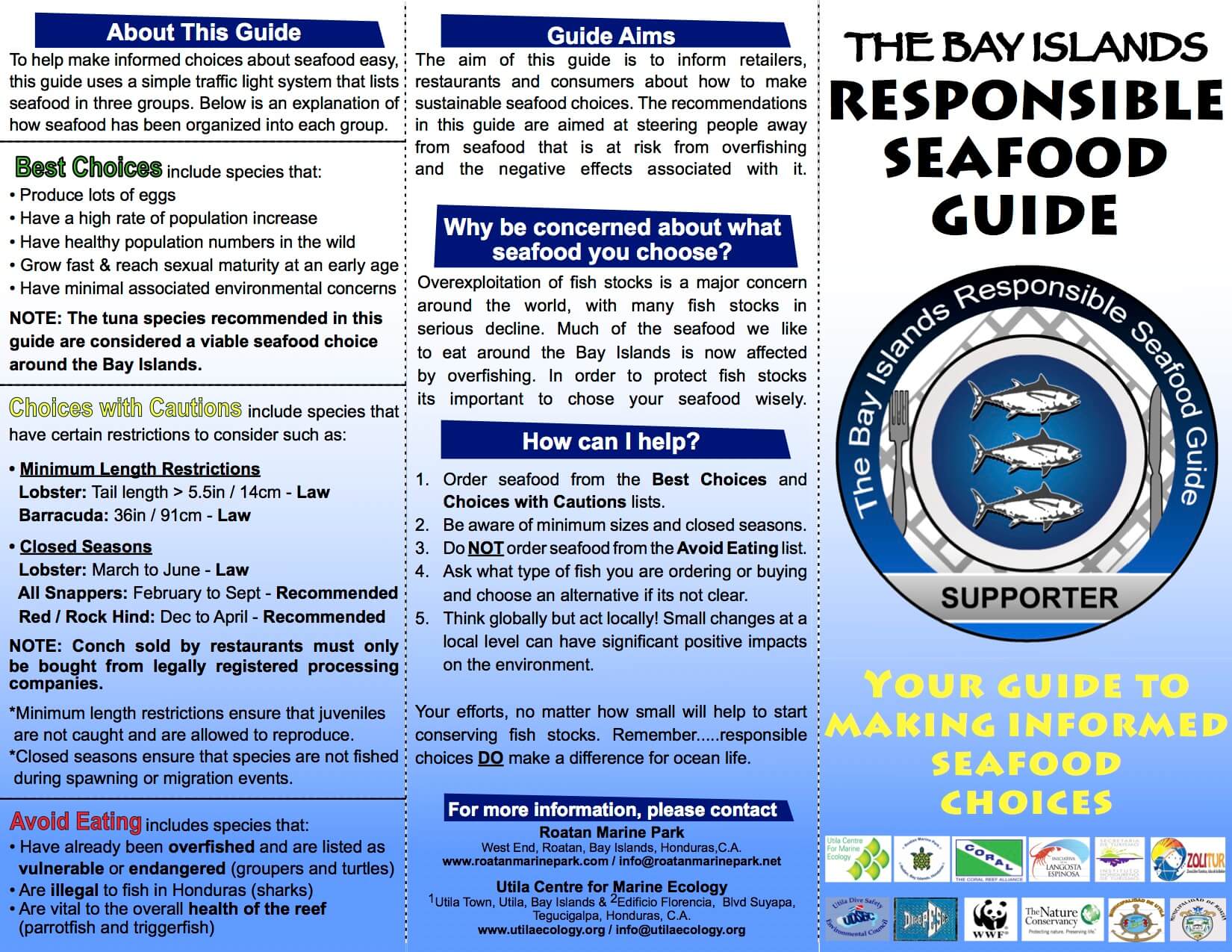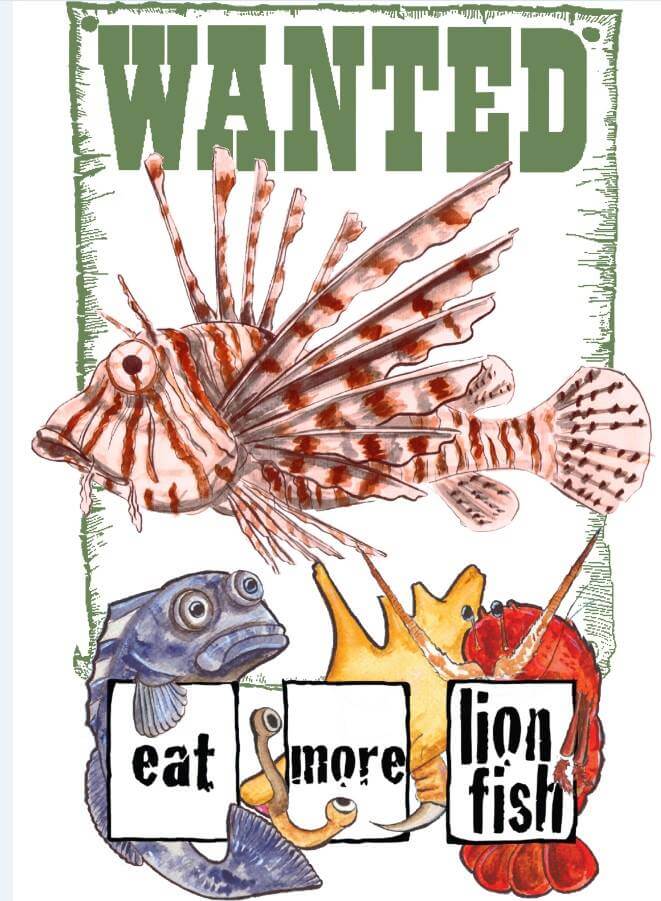5 Reasons Lionfish Suck!
It’s no secret: Lionfish suck! At least if you are in the Caribbean, where the spikey buggers aren’t supposed to be anyway...
On the bright side, the Roatan Marine Park has a program that allows divers like us to combat this destructive invasive species. So if you needed any more reason to bring a spear on your next dive with us, here are 5 reasons you should!
Lionfish reproduce at an incredibly high rate.
Seriously, they are the rabbits of the sea. Female lionfish can release up to 30,000 eggs every 7 days, making it easier for them to occupy new space and outnumber native species.
They eat babies!
The cruel and heartless lionfish will make a baby buffet out of it’s chosen area of reef; potentially reducing the number of native juvenile fish by 79% in as little as 5 weeks.
Lionfish are gluttons.
Their stomach can expand up to 30 times it’s natural size - and they aren’t picky. Any and every fish is a goner if the lionfish can get it’s mouth around them. One lionfish was recently found with 60 victims in it’s stomach!
Lionfish have 18 venomous spines that don’t care about your dermis layer.
Long ago, the greedy lionfish had a chat with mother nature and demanded to be adorned with 18 venomous spines that deliver an extremely painful sting. That’s just rude. (We highly recommend carrying a zoo keeper on your hunt to prevent accidental stings.)
Lionfish have no known predators outside of their native habitat.
Boy, that’s a problem! Although triggerfish, grouper, and eels have been reported to eat them in the Caribbean. Luckily there are divers like Irma who can defend the reef with their Lionfish License!
So there you have it! But for all the negatives we have to say there is one positive thing about them….
They are delicious!
So pack your bags, grab your spear, and let’s make some ceviche!
The Bay Islands Responsible Seafood Guide
Whenever you visit somewhere new (or even at home), it's important to think about responsible consumption when you're making your dining choices. The Bay Islands developed a helpful visual guide to point out which fish in these waters that are the best options and which are ones that should be avoided. Have a look before you dig in!
Whenever you visit somewhere new (or even at home), it's important to think about responsible consumption when making your dining choices. Overfishing has run many of the waters around the world dry, and responsible seafood recommendations have been put in place all around the world to help combat, or at least slow, the killing of our marine ecosystem.
The Bay Islands developed a helpful visual guide to identify which fish make the best options and which ones should be avoided. Let's have a look before you dig in at the dinner table!
From the Best Choices list, the fish we enjoy eating and frequently find are responsibly fished here in Roatan are:
Tuna
Lionfish
Wahoo
Mahi Mahi
When you are dining out here in Roatan, look for this visual guide which is proudly on display at many local restaurants. Tuna is a great example of a popular and plentiful fish here, but in other parts of the world is sadly often overfished. Keep in mind, a fish that might be a responsible choice in some areas might NOT be in other geographic areas. It really can vary.
We caution or discourage guests from the following items that are commonly poached, caught illegally, overfished, or caught without meeting the proper restrictions.
Conch
Lobster (Only in season from July through February)
Snapper
Grouper
Below you will find a detailed guide with more information and learn how you can get involved. Without the demand for fish that are at risk, there will be no supply! Please think how you can help protect Roatan's local fish populations by sharing this with others and making responsible seafood choices when you dine out.
Eat More Lionfish
We couldn't resist the opportunity to encourage our seafood enthusiasts to give this tasty fish a chance. The fillet is not very oily or fishy tasting, so there is a lot of variety for how it can be prepared and the flavors you can enjoy!
Interested in hunting lionfish to help bring this invasive species directly to your plate at home? Learn how you can obtain a Bay Islands Lionfish Spearing License from the Roatan Marine Park's Invasive Lionfish Control Program.
Bay Islands Lionfish Spearing License
As a marine reserve, it's illegal to spearfish in the Roatan Marine Park. Lionfish are the exception, since they have no natural predators in the Americas and their venomous spines provide a strong defense against potential predators.
The lionfish is a majestic creature. With beautiful coloring and amazing structure, there is something magical about watching a lionfish riding the current off the reef. If you're diving in Southeast Asia or Australia, it's always a delight to see these fish, and as professional divers, we love pointing them out to our guests.
However, as many of you know, lionfish are not endemic to the Caribbean. There are many viable theories as to how they were released, but most point to the private aquarium trade. As a result of them accidentally being released in this area, their numbers have exploded and people all over the Caribbean and Americas are struggling to curb their population.
Photo credit Roatan Marine Park
As a marine reserve, it's illegal to spearfish in the Roatan Marine Park. Lionfish are the exception, since they have no natural predators in the Americas and their venomous spines provide a strong defense against potential predators. As a result, the Roatan Marine Park Invasive Lionfish Control Program was developed as a proactive measure to get the local community, snorkelers, and divers involved in helping curb lionfish numbers in these waters.
To obtain your Bay Islands Lionfish License, you start by attending a workshop conducted by the Roatan Marine Park that teaches you about proper spear usage, education on hunting regulations, and includes an in-water skills assessment using coconuts as target practice. In the water, it's important to demonstrate good spatial awareness and buoyancy, since the purpose of hunting lionfish is to protect the reef, and if you're banging all over it and killing the coral, it defeats the purpose of this program. The Roatan Marine Park Lionfish License is $50 and includes a registered spear, the workshop and your license, which is valid for 2 years. The Roatan Marine Park normally runs these workshops twice a week from their Eco Store in West End based on interest, but they can run special workshops for larger groups as well.
We love it when we hear divers express an interest in lionfish hunting. From eating a tasty sustainable guilt-free fish option to competing in our annual Roatan Lionfish Derby, or for the thrill of the hunt while helping defend the reef, there are so many good reasons to support Roatan's lionfish program. Talk to your dive center and see how you can get involved today!








